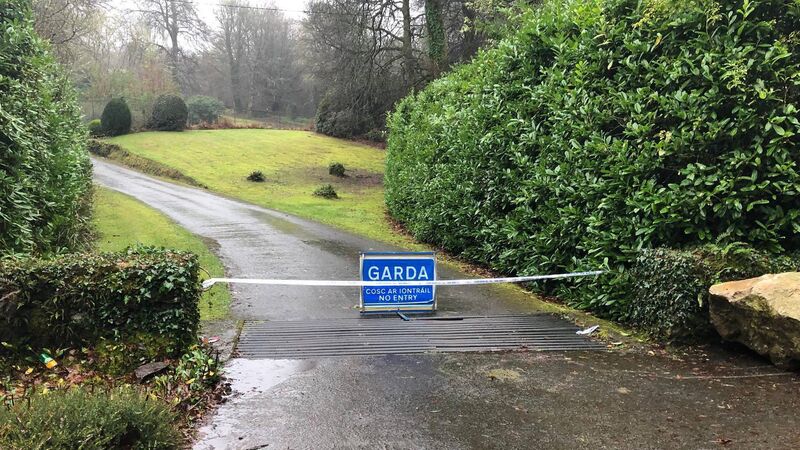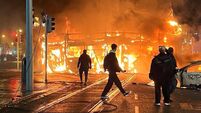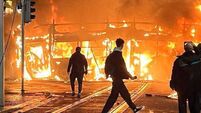No evidence arson attacks on refugee centres are co-ordinated by extremists

Security sources echo comments made by Garda Commissioner Drew Harris in which he said local people were suspected of being behind fires and other criminal damage at international protection centres, including the arson attack at Ross Lake House Hotel in Galway on Saturday. Photo: MWI
Locals setting fire to asylum seeker accommodation are engaging in “copycat” actions based on what they believe has worked elsewhere in the country, security sources suspect.
Authorities believe there is a limited effort by a small number of extreme right-wing individuals to “pull strings” in different parts of the country but that there is no evidence of “attack planning” being co-ordinated by extremists.














